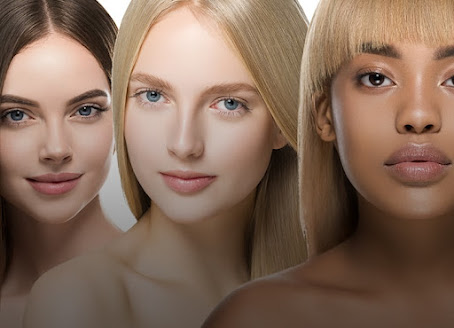Pregnancy skincare routine: What to use and what to avoid
Whether you’re scuffling with unexpected cases of
hormonal acne, or rough patches showing up across your cheeks, you might be
looking for some new beauty products and thinking what’s safer to apply
with a baby on board.
Here’s our list for a swift rundown of the skincare products safe for pregnancy and
that isn’t.
Aluminum Chloride
You’ll see this disputed element in antiperspirants,
which is the ingredient that stops you from excess sweating. It’s
controversial, but some research recommends it’s potentially cancer-causing and
we aren’t sure conclusively if that progresses to breastmilk.
Verdict: Avoid
AHAs and beta hydroxy acids or BHAs
These famous skin brightening and exfoliating elements
are still in a question mark as they might disrupt the skin barrier, which
could expose the skin up to penetration of other elements. Lotions consisting
of AHAs and BHAs should be avoided during pregnancy and must be replaced
with organic skincare.
Verdict: Avoid
Azelaic Acid
This antibacterial element can be found in rosacea
treatments and most acne products, as it works to decrease redness and reduce
pigmentation. It’s not known to contain any potential side effects for mom or
baby.
Verdict: Safe
Bakuchiol
This extract derives from the leaves and seeds of
the babchi plant that is popular for its purple flowers, which is why most
cosmetics that use it, maintain a violet hue and is proclaimed as a natural
substitute to retinol.
While experts recommend against applying retinol
during pregnancy, there’s not ample conclusive proof at this time to decide
whether a natural skincare alternative is safer or not, so it’s best to talk to
your doctor first.
Verdict: Consult with your
doctor
CBD Oil
Some substitute acne-fighting cosmetics, vegan
makeup, and even all-natural face masks consist of this trendy element. As CBD
oil doesn’t contain any THC, the danger to mom and baby is comparatively low.
But, because its safety in pregnancy and postpartum are yet to fully known,
some moms will avoid the caution and pass on it.
Verdict: Consult with your
doctor
Dihydroxyacetone (DHA)
Although it’s seen in multiple self-tanners and
professional spray tans, DHAs aren’t suggested for application during pregnancy.
The potential side-effects for a developing baby (through skin absorption or if
you accidentally consume it) are yet to be known, so this chemical mist pose
threat.
Verdict: Not safe
Formaldehyde
This chemical is found in some sap salon hair-straightening
methods and nail polishes have been connected to respiratory complications and
even cancer.
Verdict: Not safe
Grapeseed Oil
Frequently found in face serums and body oils, this
organic element can be applied topically during pregnancy and breastfeeding.
Note: grapeseed oil supplements must NEVER be taken
during pregnancy.
Verdict: Safe
Hyaluronic Acid
When it is about keeping your skin plumping and
hydrating, this natural element must be useful, especially during pregnancy and
breastfeeding. Besides, it works well and strikes no harm to mom or baby.
Verdict: Safe
Hydroquinone
Brightening or skin-lightening creams consisting of
hydroquinone are promptly soaked into the body (by as much as 45%, according to
most studies), and may strike a threat to the unborn baby.
Verdict: Not safe
Lactic Acid
This specific alpha-hydroxy acid or AHA is found in
exfoliating and products and strikes no threat to mom or the yet-to-be-born
baby.
Verdict: Safe
Oxybenzone
In 2019, the FDA asked to do more research on
oxybenzone and 11 other chemical sunscreen filters, which were suspected
endocrine dissidents and potential carcinogens. Until we are completely sure
that they’re safe, you might wish to stick to mineral-based sunblocks until
childbirth and even while breastfeeding.




Comments
Post a Comment